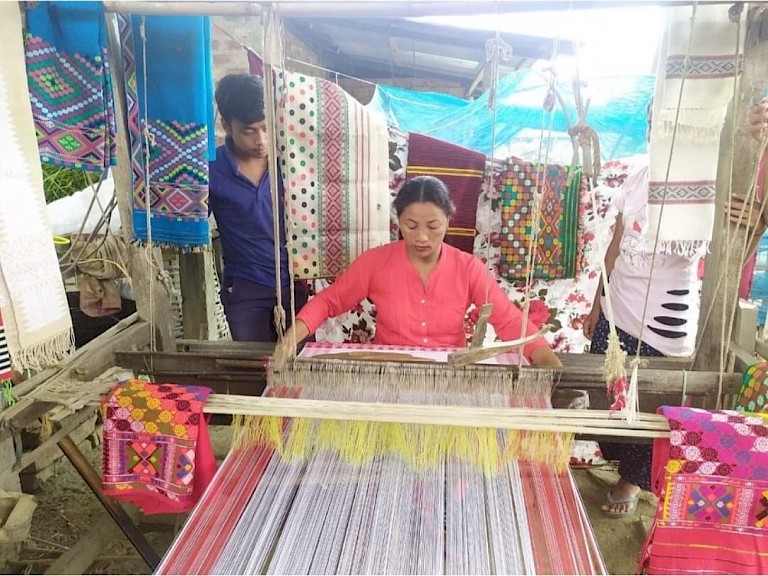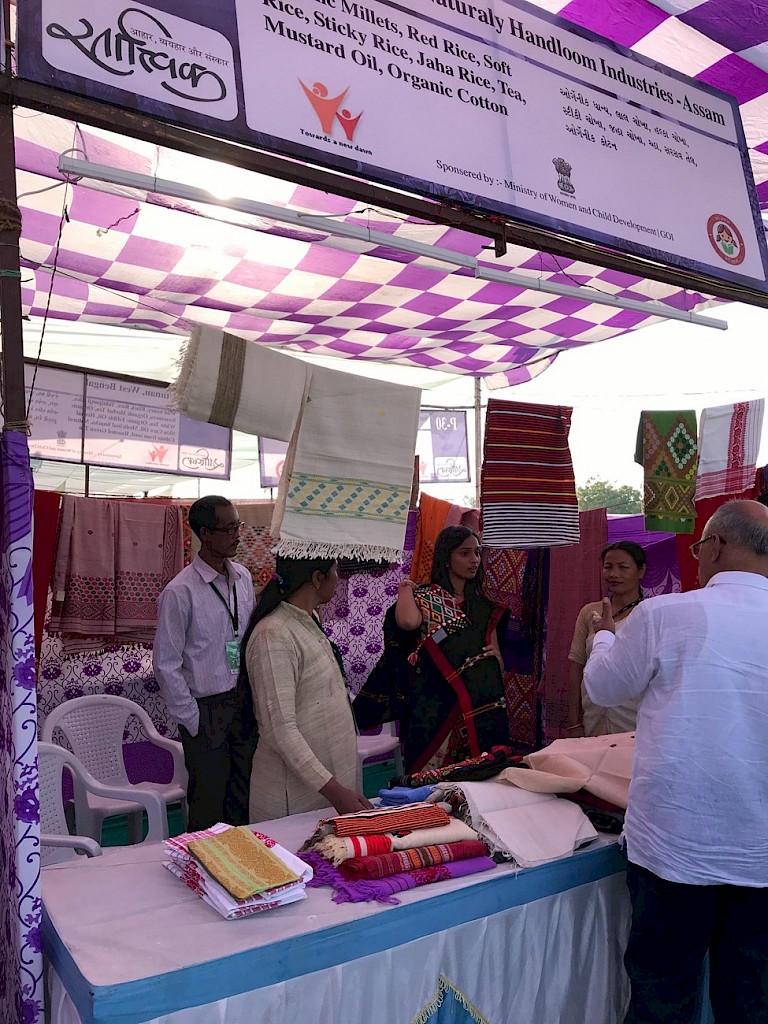



The Artist
Jamini Payeng is a weaver from Majuli Island, Assam. A craftsperson, designer and community leader, Payeng has worked as a volunteer with multiple organisations and now coordinates weaving groups to empower rural women culturally and economically. She is proficient in the art of making natural dyes and dyeing and teaches weaving through her women’s initiative, Rural Economy Development Society (REDS). In 2015, she was awarded the Shanta Prasad Award for Excellence in Handloom Weaving by the Crafts Council of India. Her work is held in the British Museum collections.
Originally initiated by Jamini Payeng to empower rural women through weaving, the project is based on self-initiated community groups and has been running for over 20 years.
Payeng’s women’s initiative, known as the Rural Economy Development Society (REDS) is run without funding and offers free training, raw materials and garment designs to self-help groups. In recent years, REDS has worked with the North East Area Affected Development Society (NEADS) to support the start-up of self-help groups better.
“Each self-help group has about 30 members. As start-up support, NEADS provides 90 kilos of yarn to a group, with each woman receiving three to five kilos, depending on their output. Jamini and her associates from REDS initially mentor them on the latest market trends in colour combinations, designs, motifs, etc., to make their outputs marketable.” (Basu, 2022)
Women weave at home but meet regularly in these local groups and sell their work (typically “mekhla chador” which are traditional Assamese dresses) in craft bazaars. A portion of sales goes back to the groups for buying more yarn or tools; the groups are then able to become self-sufficient. Faced with a changing economic and geographic landscape, this handloom weaving community provides a more sustainable alternative to the global trend in urbanisation and its problematic impacts on the climate and ecosystem. “Weaving has helped to make us independent, it has changed our lives.” (Payeng)
Payeng is a master of handloom weaving, including the art of making natural dyes. The initiative she founded twenty years ago has today become a major force in the transmission and popularisation of traditional Assamese craft and design, including an understanding of local techniques and materials such as Muga and Eri silk and Muni cotton. The significance of this project to the cultural and public life of indigenous rural communities in the Northeast of India cannot be underestimated in a political climate dominated by Hindu nationalism. This project is commendable for its cultural and economic impact, contributing considerably to climate change resilience in rural Northeast India. Payeng’s own weaving work is held in the British Museum collection, and in 2015, she was awarded the Shanta Prasad Award for Excellence in Handloom Weaving by the Crafts Council of India.
“According to Jamini, their initial aim was to support women who had been impacted by erosion and flooding to supplement their family income, without having to leave their homes. But over the last two years, it has also helped sustain families during COVID and the economic slowdown. Today there are 200 self-help groups (SHG) of weaver women across 210 villages selected based on their vulnerability to climate impacts.” (Basu) Such numbers speak to the project’s wide impact across the rural communities of Assam.

